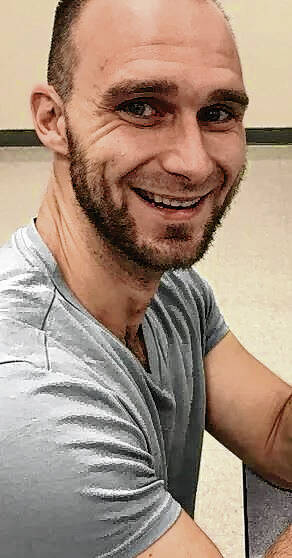
McLemore
Joshua McLemore’s mental illness had been known to officials in law enforcement and jails in Bartholomew and Jackson counties before his final run-in with the law, which led to his death last August after many days left alone in a padded cell at the Jackson County Jail.
McLemore had a history of bipolar disorder and schizophrenia, drug abuse and other serious mental health conditions, according to a report by the Indiana State Police, who investigated his death. He had been in a mental hospital in Mississippi four times.
He also had been in and out of local jails on a variety of charges, some violent. The Jackson County prosecutor recently declined to bring criminal charges against jail staff as a result of the Columbus man’s death, but he said McLemore “most likely died due to a prolonged lack of attention” by jail staff.
To be fair, jail staff anywhere McLemore ended up had a profoundly tough customer on their hands, as The Republic’s Andy East chronicled in stunning detail Sunday. His behavior, and his criminal history, were dangerous and disturbing. Coupled with his known history of mental illness, they also were screams for help.
McLemore’s case demonstrates failings of the criminal justice and mental health systems to recognize an unwell human being and respond appropriately. Blame cannot be entirely laid at the feet of jail officers who are not trained to care for mentally ill people, though they did very little by the book in McLemore’s case.
And even as jails — including in Bartholomew and Jackson counties — have increased their response to the growing number of inmates demonstrating mental health problems, they are holding far too many people who need treatment.
“Where the problem lies is there’s nowhere for these people to go,” said Bartholomew County Jail Commander Capt. John Martoccia. When profoundly mentally ill people wind up in jail, he said, “It may be a month or two before there’s even an open bed, and meantime, my staff is having to deal with it.
“… My staff does a really great job. However, with the increasing mental health issues, we just can’t keep up with it,” he said.
Martoccia said if he could have his wish list, it would include adequate placement facilities outside the jail for people needing mental health treatment.
“There has to be someplace for them to receive the help they need,” he said. “I don’t have the answer for it. … It boils down to money.”
Effective community mental health services were, as some readers have mentioned, the unkept promise from the late 1970s and early 1980s, when many state mental hospitals were rightly closed due to maltreatment of their wards.
But we are still failing people whose underlying crime is that they are mentally ill. They end up in jail, perhaps the worst possible outcome for a person in crisis.
The state of Indiana, with its multi-billion-dollar surplus, can afford to do better than this. We could dedicate ourselves to helping our fellow human beings at the point when they need our help the most.
The question, really, is whether we care enough to do so.
